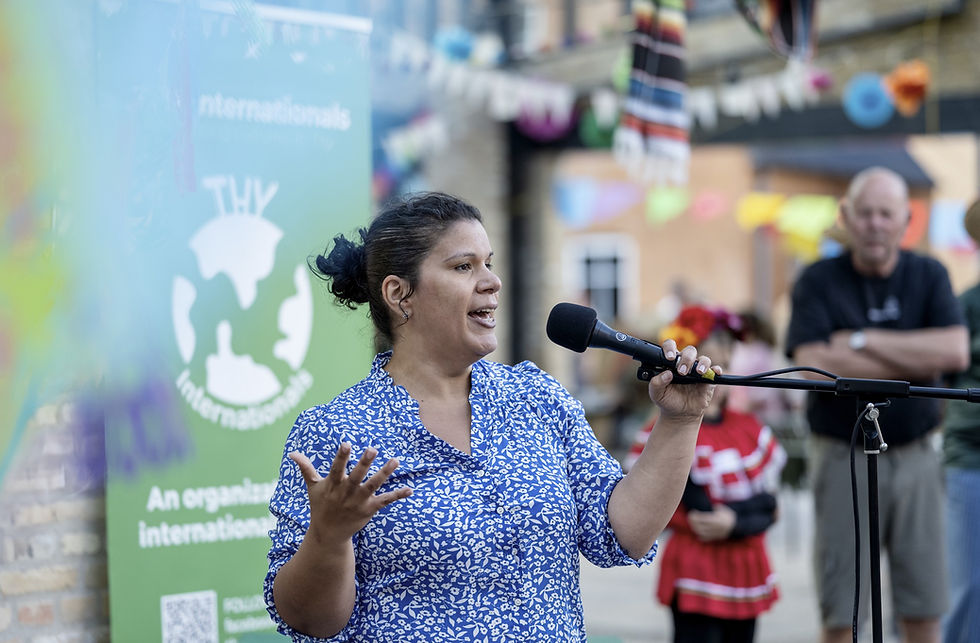International learning
- The International
- Aug 2, 2021
- 3 min read

When choosing a new home after relocating abroad, educational options are one of the big-ticket items that can make or break a region. Michaela Medvedova highlights the learning options in Lolland.
Pictures: Istock / Rochelle Coote
Starting this August, Lolland has an ace up its sleeve when it comes to attracting internationals. Lolland International School, Denmark’s first international municipal school, fully funded by Lolland Municipality, opens the doors to its first students. Based in Maribo, the school will offer free education to kids from 6 to 15 years old. For the inaugural fall semester, the school has already enrolled 55 students.
The school was established to cater to international families moving into the region to construct the Fehmarn Belt tunnel, an immersed tunnel connecting Lolland with Germany and with Danish companies. “But the long-term view of the school is that it will also provide a boost for other companies in the region to attract talent,” says Dominic Maher, the founding principal. Additional spots will also be open to local families.
Students will follow a bilingual programme as the school uses both Cambridge International Curriculum and the Danish national curriculum. Subjects such as mathematics and sciences will be taught in English while others like arts or civics will be taught in Danish. “A bilingual model offers international families in Denmark a better chance at integration,” explains Dominic. This way, if a shorter stay in Denmark turns long-term for the family, the children are prepared for the next steps in their education. “When the students have finished, they have passed the Danish exam and have further education options. Of course, they are practising Danish and learning it much quicker compared to traditional international schools,” Dominic describes the benefits of bilingual education. This also applies to children from local families who can gain a greater appreciation of their own culture.
“A bilingual model offers international families in Denmark a better chance at integration.” - Dominic Maher, Founding Principal
The classes will be multi-age, with two grades combined in one, and they will represent a multicultural setting with students at different language levels. In addition, the staff and the broader network - for example, the school psychologist from the municipality or the nurse - have received training to be aware of the sensitivity of interacting with people from different cultures.

The principal appreciates the positivity of the Lolland community to help establish the school and build its network. “Most people can understand the role an international school can have for the municipality - a physical symbol of internationalisation taking place in Lolland,” says Dominic. The school will be a part of the rebranding of Lolland and will help the region tell a new story - a modern, forward-thinking one.
Internationalisation is not the only aim, though. One of the central values of the new school is the focus on community. “It’s vital that the families who arrive connect with the community. So we help them into sports clubs, other social groups, or local business associations - networking can be essential,” Dominic concludes about the impact of the school on both the community and the internationals looking for a new home within it.
Learning the local language
Another free way to joining the Lolland community is learning the Danish language and Denmark’s traditions and culture. Lolland Language School provides both. Located in Nakskov and Maribo, the school speaks to the global nature of the municipality. With its 150 students, it teaches Danish to an impressive 37 nationalities.
The school offers courses at all levels based on your existing knowledge of Danish, and there is a choice between day or evening classes to accommodate working students - and if you live in Lolland, the courses are free!
Secondary education
The options for young students to continue learning in Denmark through secondary education or “ungdomsuddannelse” are wide. Young Lollanders can choose from gymnasiums in Nakskov and Maribo to CELF, the Center for Vocational Education Lolland-Falster, or FGU Lolland-Falster, the basic preparatory education or “forberedende grunduddannelse” that can help get them ready for vocational education, high school education, or advance in their profession.
How about an international food academy? Establishing one in Lolland-Falster is the goal of Højskoleprojekt Lolland-Falster! It aims to focus on food from agriculture to gastronomy, joining an academic focus with practice. Set within the folk high school tradition of Danish education, it ultimately strives to make an effort towards sustainability.
Other courses
Education never ends - and the Lolland municipality knows that. From yoga and upholstering furniture to learning world languages. There are two evening schools in the region, AOF Lolland and LOF Lolland Falster, offering a broad range of classes.
This autumn will also bring an opportunity for bilingual local citizens from Eastern Europe that will serve as a gateway to a SOSU-education: the social and health assistant education (Social og sundhedsassistent uddannelsen). It is the perfect chance to strengthen your Danish skills and get a head start at working in the healthcare sector.









